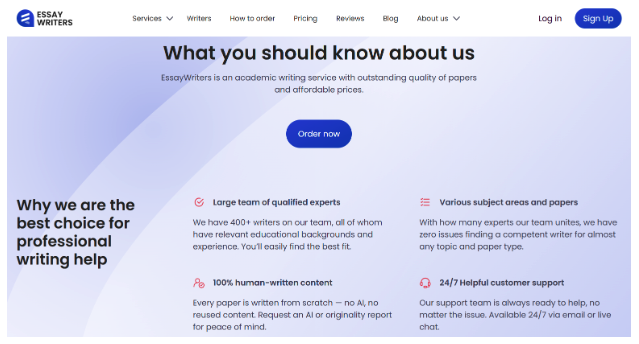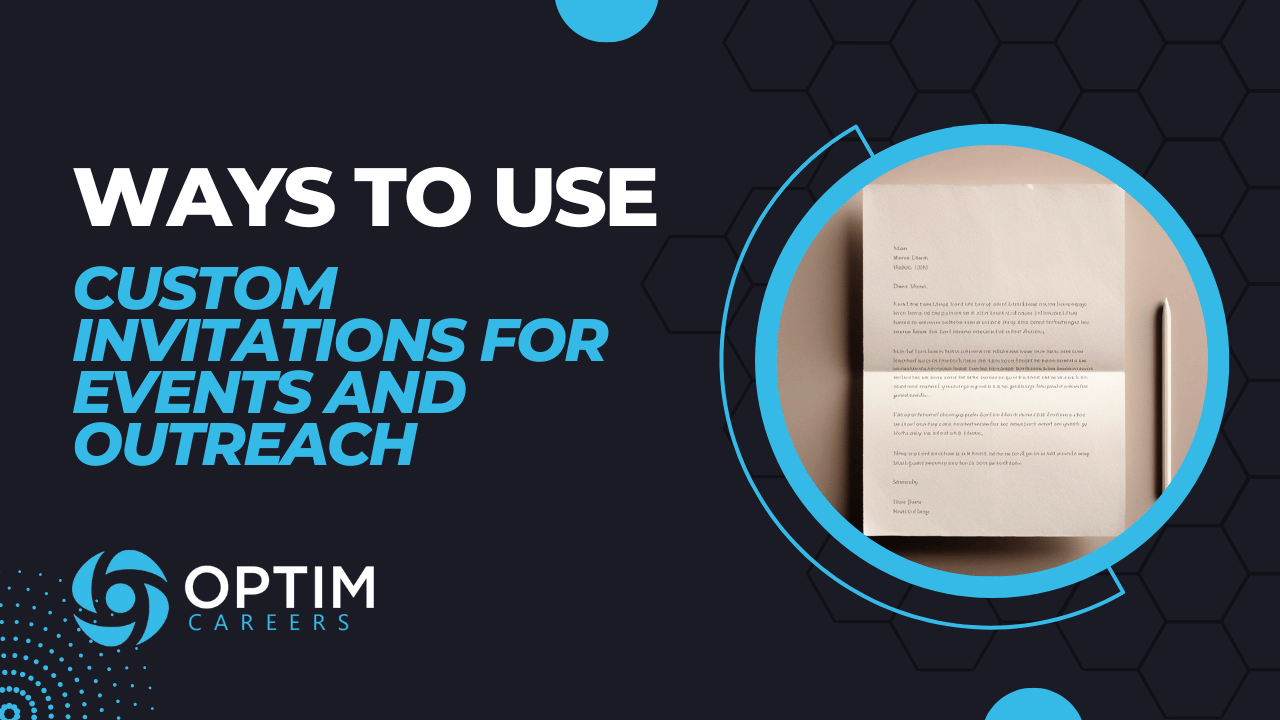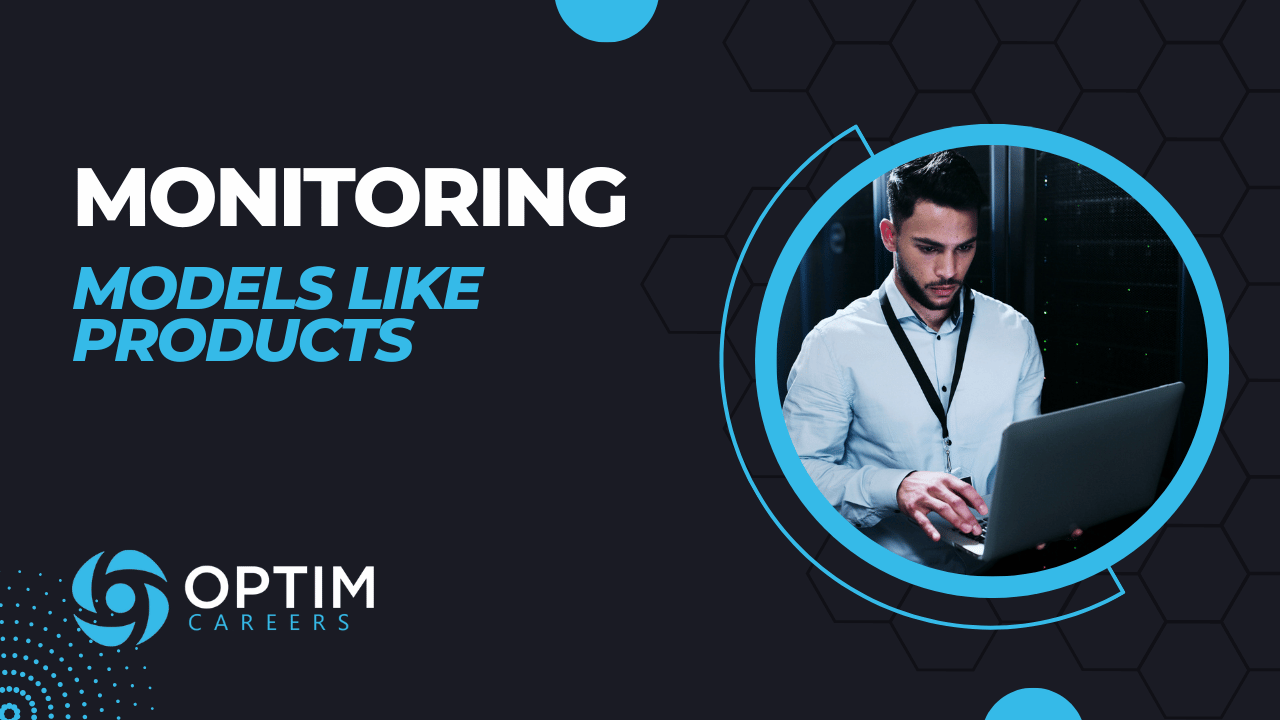Customer Success Manager Resume [With Examples From Successful Resumes]
Customer Success roles are very attractive. I speak with many people each year who are vying for one of these jobs, yet the vast majority of them don’t seem to understand how to articulate their experience in a relevant way that makes Customer Success hiring managers want to take action.
I’ve helped place hundreds of customer success managers throughout my career and worked with many more to write their resumes. Today, I will walk you through step-by-step how to write a resume for a customer success manager job with three examples based on resumes that have worked.
Customer Success Manager Skills
Let’s start by understanding exactly what a customer success manager does and the relevant skills required. Your resume should include examples of all of these.
And don’t worry if you haven’t done them all. You probably have similar experiences if you think hard enough about it. I’ll also list out the “soft skills” or transferable skills for each in case that’s you. And later, I’ll show you an example of a resume from someone without any customer success experience.
Preparing Quarterly Business Reviews
They may not be quarterly, but this is usually a key responsibility of any customer success manager. You’ll need to show in your resume how you’ve developed success plans for customers which outline their critical success factors, metrics for success, potential issues, and recommendations.
Talk about how you consult with customers on how your product or service is helping them achieve those success factors, using metrics, and help guide them to more success using your product.
Transferable Skills Involved: Data Analysis, Written and Oral Communication
Driving Adoption
CSMs are responsible for monitoring and facilitating customer adoption of the solutions they sell and recommend. Showing how you learn about customer’s business needs and relate your product to them will make your resume stand out.
You can write about how you were able to get multiple departments or people on board to make full use of your solution.
Transferable Skills Involved: Data Analysis, Negotiation, Communication
Onboarding
Many customer success managers are responsible for onboarding new customers. Write about your experience working with sales to acquire important information, working with the customer to understand their needs and goals, and how you successfully onboard a new customer to ensure they adopt the product or service and make full use of it.
An important part of onboarding is educating a customer and setting clear expectations that you can monitor and track. Writing in your resume about how you’ve helped clients get outcomes quickly and how onboarding played a key role in that will help you appear more skilled than others.
Transferable Skills Involved: Teaching, Communication
Issue Resolution
While I wouldn’t overly focus on these experiences in my resume, they are worth a bullet point or two. Often customer success managers are the liaison between the customer and other teams. Writing about ways that you have prioritized and managed customer concerns is important. When customers feel their needs are being met, they’re likely to continue buying your product or service.
In your resume, you could discuss how you partner with other teams to resolve issues, your process for escalating issues and advocating for your customers, and any improvements you’ve made to resolve more issues faster. Discuss how you were the voice of the customer (that’s an important term by the way) and how you advocated for your customers with other departments.
Transferable Skills Involved: Gaining Buy-In From Others, Prioritization, Organization, Communication Skills
Feedback
Because CSMs are the primary point of contact for customer accounts, they’re also the most valuable source of information for product teams and sales teams. In your resume, write about how you’ve obtained meaningful customer feedback, analyzed it, and worked with other teams to help them prioritize things such as product roadmaps.
You may write about gathering, analyzing, and relaying feedback on product features, usability, or customer satisfaction.
Transferable Skills Involved: Gathering Information, Data Analysis, Prioritization
Improving Utilization
One performance indicator you may be measured on as a CSM is utilization. How much does a customer utilize your product or service? The more they utilize it, the less likely they are to move to a competitor. In your resume, write about ways you have improved utilization and its impact on retention.
Retention
Retention rates are a big metric in the customer success world. Write about your logo retention or net dollar retention in your resume. Both are valid metrics. If you’re trying to obtain your first customer success job, think about ways you’ve achieved renewals or repeat customers. You want to write about things that are similar to this concept.
Revenue
Customer success is not a customer service job. It’s a sales job in many aspects and expanding revenue on your assigned accounts is an important metric you’ll be judged on. While retention may play a part in this, you could also write about referrals to the sales team because of your positive customer relationships or about how you identify opportunities for up-sells on existing accounts yourself.
Every customer success resume should talk dollars. It is a revenue-generating department.
Other Customer Success Skills
The skills and responsibilties above aren’t the only ones customer success managers use every day, they’re just the big ones that most companies ask for. Here are some additional skills that you could consider writing about.
Client Management
Customer Support
Software Knowledge
Project Management
Business Acumen
Conflict Resolution
Important Customer Success Resume Information People Often Forget
I’ve reviewed hundreds, maybe even thousands of customer success resumes at this point in my career, and here are the key pieces of information that many people forget to include in their resumes, but should.
Scope of their Roles
Did you work with enterprise accounts, mid-market accounts, or SMB (small business) accounts? This will make a big difference because most employers will want to hire someone with similar experiences.
Did you work with international or domestic accounts or both? Depending on what you are selling and who you are selling it to, there may be regional factors in which you have a deeper expertise compared to your peers. Communicate those things.
The number of accounts you managed. There’s a big difference between someone who manages 10 accounts and someone who manages 50 accounts. The scope of those roles will most likely be significantly different.
How much were those accounts worth? If you were responsible for accounts worth $10M, that’s different from someone who is managing accounts worth less than $1M.
What pieces of the customer lifecycle did you own? Make sure it’s clear if you owned everything from onboarding to renewal, or just some pieces. This is why I always include a brief statement of what I was responsible for in my job summaries, contrary to many resume writers telling you not to do this. It’s one of the first things a recruiter or hiring manager will look for. I don’t care what you were good at until I know what you did. I’ll talk more about this in the writing your work experience section later on.
Customer Base
What did you sell and who did you sell it to? Maybe you didn’t sell it directly, but your company did and you’re a part of that. Including things like industry, type of product, and who your key customer partners were is important. Did you work with HR Business Partners selling software like Workday? Did you work with executive-level customers? All of this matters.
Now that we’ve covered the type of content you should include in your resume, let’s talk about how to communicate it in a resume next.
Customer Success Manager Resume Summary
Most resume summaries miss the mark. They sound smart but offer nothing of substance for the hiring team reading it. Don’t make that mistake. You want to communicate the problem that you solve for an organization as a customer success manager, two or three ways you solve that problem, who you solve that problem for, and sprinkle in some evidence to back up your claim.
Here’s an example.
The problem I want to be known for solving is: Increasing logos and net revenue retention.
The primary ways I believe are important to achieving that are: Quantifying value for the customer, driving adoption, and advocating for customers with internal teams.
Who I solve this problem for: B2B HR SaaS, Enterprise Accounts
If I were to put all that together in a concise resume summary, it might look like this.
Customer Success Manager Resume Work Experience
The number one piece of advice I can give you when writing the work experience of your resume is to make sure it is relevant to the person reading it. Don’t assume that they know what you know either. The hiring managers reading your resume may come from different backgrounds, so be sure to provide the context they need.
Here’s how I would start writing my work experience for a customer success job.
Job Summary
Start each job with a brief summary, two to three lines of text that provides an overview of the job, your purpose, and what you did. Here’s the formula.
How You Got the Job + Mandate + Audience + Key Skills + Context
Let’s look at an example together.
How I Got the Job: I was promoted after another person was terminated for underperformance.
Mandate: My mandate was to improve the net logo and net revenue retention.
Audience: I worked at a Fintech company with approximately 500 accounts, of which 10 mid-market accounts were assigned to me.
Skills: Onboarding, Adoption, Business Reviews, Influencing Roadmaps
Here’s how we could put all of that together in a concise job summary for this job.
Promoted to improve net logo and net revenue retention by 32%, adding $144,000 in revenue within year one on 10 mid-market Fintech accounts. Responsible for onboarding, customer adoption, preparing quarterly business reviews, and designing feedback loops to influence product roadmaps.
When someone reads that, they have a crystal clear picture of the job you were hired to do and the scope of your role.
Customer Success Manager Resume Bullet Points
Now the fun part begins. The next step is to provide evidence that builds the case that you were really good at this job. This is what I use my bullet points for. I will take the skills that I listed earlier and ask myself, “How can I show that I was good at these things (or similar/related things) in each of my past jobs?”
The answers to that question will then become your resume bullet points for each job experience. When answering the question, it’s usually best to include a result and context around how you obtained that result.
Here’s an example.
If I wanted to provide evidence that I was good at advocating for customers and resolving their issues, I might say something like this.
Partnered with product teams to advocate for clients and pushed for the prioritization of 4 product features to address client usability concerns, keeping clients updated on product development which led to the rollout of all 4 features within 3 months and 100% net logo retention on at-risk accounts.
This bullet point would show that I am good at the required skills of advocating for clients and communicating feedback to other teams. It also shows that I have strong transferable skills such as negotiation, communication, and prioritization. It includes results and, most importantly, it shows that I understand the impact of the job.
You could write about creating a process, improving a process, automating things, data modeling, or improving the customer experience (among many other things) in your resume bullet points.
Keep in mind as you write these, all companies are different. Thirty percent growth may be good to one manager and seem poor to another. Don’t forget to add context when you need it. Compare it to a goal or the department average, or a time period if you need to. Make sure they have the context necessary to know that your numbers are good.
What If My Job Wasn’t In Customer Success
If you’re like most people, you weren’t born into a career. For many of us, our careers are fluid and change sometimes. I, myself, have made 5 major career changes throughout my life. So don’t worry if your previous jobs weren’t customer success. We can still write an effective resume.
What you’ll want to do is think about related tasks that may utilize similar skill sets or have similar outcomes. For example, If I was in mortgage sales and wanted to pivot into customer success, I couldn’t talk about adoption in the same sense as a CSM could. However many mortgage companies have many self-service features.
I could write about how I helped onboard individuals to use those features and how a large percentage of them adopted them. There could even be a utilization component to the story because the more potential customers use that platform, take the time to input their information, and upload documents, the less likely they are to leave and work with a competitor. It may not be exactly the same as a customer success role, but it’s similar enough.
You have to find similarities between the work that you do and the work that you want to do. If you look hard enough, you’ll find them. I’ve never met anyone who I’ve worked with 1:1 who hasn’t been able to translate their experience. If you need help with that, check out my coaching program. It’s the most affordable way to get help when you need a bit of direction or outside perspective from someone who understands what you’re trying to do (and knows how it works behind the scenes).
Other Sections for Your Customer Success Manager Resume
While your work experience will be the largest section of your resume, there are some others we haven’t talked about that you should include.
Education & Certifications
While education seems obvious to most people applying for customer success roles, don’t forget about relevant certifications. The important word there is relevant.
Some customer success certifications you may want to consider, especially if you’re fairly new to the customer success space or you need an edge in a competitive job market are:
Aspireship Customer Success Foundations (or Customer Success Intensive)
Certified Customer Success Management Professional from Practical CSM
If you were picking one, I would highly recommend the Aspireship program. Not only have I known several people who said it was a game-changer for them and found a job shortly after completing it, but their program is way more than a certification. It also includes interview preparation and job placement services. You can even sign up for free to determine if it’s right for you. Just use my link above and use my unique code.
Technology
This is a commonly overlooked section, but highly relevant. While it may not be enough on its own, it can tip the scales in your favor and I’ve seen it happen many times in my briefings with hiring managers.
Include any software proficiencies you have in this section. If you have experience with Hubspot, Salesforce, or a ticketing system, list it in this section. You can see examples of this section in the customer success templates and samples later in this article.
What Format Works Best for a Customer Success Manager Resume
While you may be tempted to use a functional resume if you don’t have prior experience in customer success, I would encourage you to resist that temptation. Rarely have I seen that work out well for people.
Instead, I would encourage you to write a reverse chronological resume. That one starts with your most recent job experience and works backward chronologically. Rather than list out transferable skills in a functional format, build them into your work experiences like everyone else.
The examples I’m about to show you are written in reverse chronological format.
Customer Success Manager Resume Examples
It seems that every customer success manager resume example you see these days is from a resume builder tech company. And I’ve got to say, they’re pretty bad. I have yet to find one that has good examples.
So, I’ve written three customer success manager resume samples to cover everyone, no matter how many years of experience you have. Use these to inspire your own ideas.
Customer Success Resume Example for Someone with Prior Experience
This resume sample is based on someone who has several years of direct customer success experience. It includes key talking points about retention, what type of accounts this person has worked with, how big those accounts were, and how they’ve made the company money.
Teacher to Customer Success Manager Resume Example
This resume example is based on someone who is a current teacher looking to enter the customer success space. You’ll notice how it attempts to translate and explain the transferable skills in teaching, and how those could be an asset for someone in a customer success manager role.
Sales to Customer Success Manager Resume Example
This resume is based on someone who has never had a job in customer success, but does have several years of sales experience. Notice that it translates sales language into customer success language in the way that it describes each job. You’ll also notice that it’s not overly focused on sales, like a sales resume would be.
Customer Success Manager Resume Template
While you’re free to copy any of the examples in any way they may help you to write your own customer success resume, you can also access editable versions of all three templates via Google Docs.
If you want some extra convenience in your life (because let’s face it, job searching and resume writing are not convenient at all), you can access all 3 customer success manager resume templates here.
Customer Success Manager Resume Formatting
If you don’t use my templates, I want to take a quick minute and address some formatting best practices. While your content aims to be relevant, your formatting should aim to be readable. Don’t make people burn too many brain calories because it’s too dense. Here are some quick tips:
White space is your friend. You’ll notice my templates have a lot of white space in between text. Do that with your resume.
Use font pairing. Think wine pairing. Some go together, some don’t. Pick two fonts and use them consistently throughout the resume; one for headers and titles, one for body text.
Right align your dates of employment (unless you elect to center everything).
If you want to know more about formatting a resume, read my definitive guide to resume writing. It has everything you’ll need to make good decisions.
Customer Success Manager Resume Recommended Reading
Customer Success Certifications (coming soon)
Customer Success Manager Interview Questions (coming soon)
Is a Customer Success Manager or Associate Better (coming soon)
Cole Sperry has been a recruiter and resume writer since 2015, working with tens of thousands of job seekers, and hundreds of employers. Today Cole runs a botique advisory firm consulting with dozens of recruiting firms and is the Managing Editor at OptimCareers.com.



















